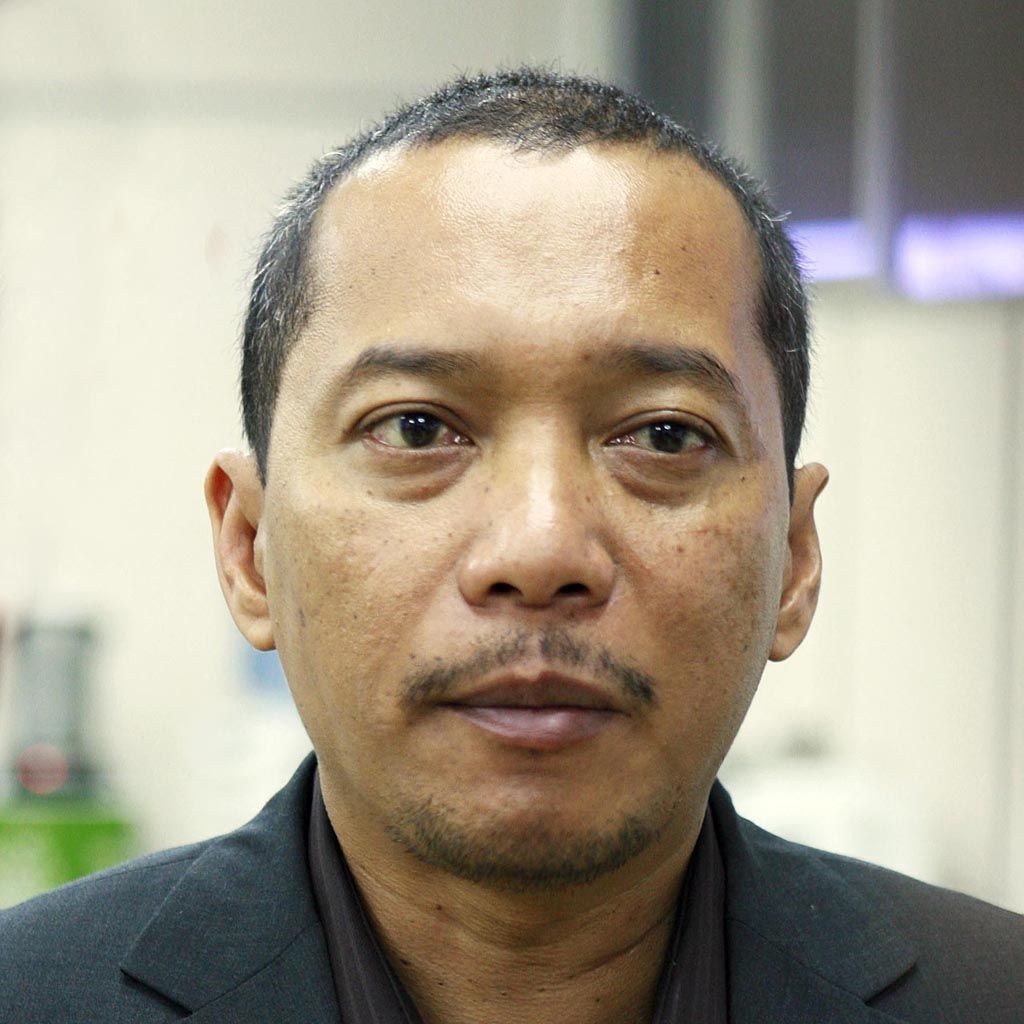G20 and the New Social Contract
Indonesia will be stronger in carrying out its international role in the G20, if it can finish its task to solve labor problems that have disrupted Indonesia’s industrial relations for decades.

Indonesia will lead the Group of 20 major economies as the world enters the recovery phase of the pandemic crisis.
With the theme "Recover Together, Recover Stronger", the G20 seems optimistic that the COVID-19 pandemic will end. The agenda for the future talks is mostly about the economic recovery. The appointment of Indonesia as the G20 leader is indeed due to the annual rotation system, which is implemented to ensure that no country dominates the agenda. We, as the children of the nation are grateful that our country has the opportunity to contribute to helping the world recover from the crisis.
The G20 was originally formed, in 1999, only to deal with the global financial crisis, but slowly turned into a group of countries dealing with global governance issues such as tax, energy, migration, finance, environment and the labor market. The G20 Declaration in Rome at the end of October set 27 priority issues for 2022. These priority issues almost accommodate all the actual issues discussed at the United Nations.
In addition to increasing its scope, the G20 has also expanded its alliances with other well-known international organizations, such as the Organization for Economic Co-operation and Development (OECD) the International Labor Organization (ILO) and several engagement groups representing various stakeholders, ranging from business groups, civil society organizations, trade unions, parliaments and experts. This is an attempt by the G20 to be more inclusive to all groups and at the same time to increase its legitimacy, which is still often questioned by some experts.
Also read:
> The G20 and Global Economic Governance
How does the G20, as a non-formal institution, have the legitimacy to regulate global governance? Isn't that the business of the UN? On the one hand, the priority issues of the G20 show the world that the organization is not only concerned with the interests of the G20 alone, but also with the problems of poor countries, as stated in priority issue number 10 (support for vulnerable countries). However, too many priority issues in one year will make it difficult to measure its success.
The involvement of stakeholder groups from civil society, such as labor groups (L20), women (W20), businesspeople (B20), youth (Y20) and others, is expected to help accelerate the implementation of priority issues in a more focused way.
New social contract
Labor (L20), as one of the groups involved in the engagement group, hails the contents of the declaration positively because it is in line with the priorities of workers, who want full employment, equitable transition in climate policy and universal basic social security. However, the International Trade Union Confederation (ITUC) has called for the need to create a “new social contract” to fill the absence of the rule of law as a result of new economic, social and technological changes.
The workers are worried because many problems they face today cannot be solved by existing laws or regulations. The growth of new types of work without standard protection (non-standard employment form) such as platform workers; the emergence of a "surveillance capitalism" industry that produces goods and services using behavioral data as raw materials (Shoshana Zuboff, 2019).
/https%3A%2F%2Fkompas.id%2Fwp-content%2Fuploads%2F2021%2F08%2F20210830-OPINI-Mengembangkan-Tenaga-Kerja-Konstruksi-yang-Berdaya-Saing_1630322633.jpg)
Supriyanto
The two problems above have contributed to the blurring of the definition of employers and workers, and weaken the role of industrial relations institutions as institutions that have been used to manage industrial relations conflicts. There is a problem in terms of “gap representation” as both labor unions employers' unions reduce membership coverage, so that representatives of tripartite institutions do not fully reflect their constituents.
Some examples of the absence of the rules can be found in the following fields. First, in the field of employment, technological developments have given birth to new types of workers without the need for an employer, such as platform digital workers and remote workers.
Second, in the field of social security, with the improvement in life expectancy, many workers will retire at their productive age, but without pension benefits. The increase in the number of vulnerable workers without basic social security, in addition to worsening the sustainability of social security, has the potential to plunge more workers into poverty.
Third, in the environmental field, the threat of global climate change without clear and measurable mitigation and adaptation will increase unemployment massively.
Also read:
> Rethinking Labor Relations and Wage Policy
Fourth, in the health sector, with the increase in global pandemic diseases, there is a pressure to establish an occupational safety and health program (K3) as a fundamental ILO convention, so that the government is more serious and ready to face the possibility of another global pandemic.
Fifth, the problem of women's wage inequality (gender pay gap), which from year to year has barely changed. Women's wages are always lower than men's. According to 2020 data from Statistics Indonesia (BPS), women’s wages were 23 percent lower than those of men.
Sixth, in the field of taxation, the existing legal system is unable to fight tax evasion practices by digital companies. That is why the G20 together with the OECD agreed to the establishment of a 'Two Pillar Solution' to address the tax challenges arising from the digitalization of the economy. The tax potential of this initiative according to the OECD could reach US$100 billion a year.
The new social contract is not about higher taxes, but the rearrangement of the basic role of equity and distribution to society. The delay in the world and the government in the arrangements will bring socio-economic uncertainty to workers, employers and the community, which can reduce public trust in the government and public institutions.

Doing the task
The G20 priority issues promise a lot of hope for improving the welfare of Indonesian workers as almost all of the workers' hopes are contained in these priority issues. Now it is just a matter of ensuring it is implemented correctly and quickly, because workers need concrete evidence, not just good statements on paper.
Indonesia will be stronger in carrying out its international role in the G20, if it can finish its task to solve labor problems that have disrupted Indonesia’s industrial relations for decades. It will be difficult for Indonesia to have the moral courage to overcome global problems if it fails to carry out the mandate of the G20 declaration domestically. G20 member countries are generally rich countries as only a few are developing countries.
Indonesia and India are the countries with the lowest per capita income. This means that Indonesia has a heavier burden in implementing the G20 priority issues. Some of the classic labor problems below should be resolved before getting too involved in overcoming global problems.
With the dynamics of the world economy filled with various uncertainties and complexities, the wage system should have flexibility to adapt.
The solution to the problem of minimum wages and living wages should be resolved through a new mechanism in accordance with the nature of the fourth industrial revolution. With the dynamics of the world economy filled with various uncertainties and complexities, the wage system should have flexibility to adapt.
The wages in a company should be determined through bipartite negotiations at the company level. This system is fairer and 'less-conflicting' because the amount of wages will reflect business conditions. While the minimum wage is set by the government, it is only aimed at vulnerable workers who do not have a bi-partite bargaining scheme (e.g. micro-enterprises with fewer than 10 workers, remote workers, daily workers). Indonesia's complex wage system, due to too many mechanisms, has the potential for prolonged conflict and to trigger many irregularities.
Also read:
> Complexity in Setting the Minimum Wage
> Job Opportunities in the Changing World
The continued use of contract workers could be prevented by giving contract workers higher wages and the opportunity to get Job Loss Guarantee (JKP). Unfortunately, in the current regulations, contract workers are not protected by JKP.
Another long-standing problem is related to weak work supervision. The government should immediately solve the problem by complying with the ILO standards. In the case of Indonesia, the labor inspection should be carried out at the ratio of one inspector for 40,000 companies (1:40,000), but now the ratio is 1:63,336. To achieve universal social security coverage, especially in the field of employment, everyone who is of working age must be required to bring a Jamsostek (social security) card when traveling by public transport.

Rekson Silaban
It is the same with the requirement to show negative results from antigen or polymerase chain reaction (PCR) tests. A special regulation should be issued to overcome the problem of platform workers who do not have work protection. The most urgent thing for platform workers is social security protection, given the high number of workplace accidents that occur. We can imitate the social security protection used by India which is based on a shared contribution from government and entrepreneurs.
Technological changes, high competition and changing lifestyles have made the current employment much different from that in the past. Many of the old rules, theories, approaches and experiences are no longer relevant. Now, only those who continue to innovate and adapt quickly can survive.
Rekson Silaban, the Co-chair Labor 20 for G20
This article was translated by Hendarsyah Tarmizi.